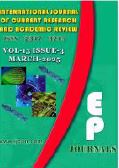Abstract Volume:13 Issue-3 Year-2025 Original Research Articles
 |
Online ISSN : 2347 - 3215 Issues : 12 per year Publisher : Excellent Publishers Email : editorijcret@gmail.com |
2Research Scholar, ICAR- Indian Institute of Soil and Water Conservation, Dehradun, India
Agriculture is a cornerstone of global economies, yet its practices and business models vary widely across countries. This study presents a comparative analysis of agricultural systems in the United States, China, India, Brazil and the Netherlands, focusing on technology integration, government policies, market dynamics and cultural contexts. Key factors such as land availability, labor conditions, environmental challenges and trade regulations significantly influence agricultural frameworks. The research highlights the role of innovation—especially in precision farming, automation and biotechnology—in boosting productivity and sustainability. Developed countries often leverage advanced technologies and robust infrastructure, enabling large-scale, efficient agricultural operations. In contrast, developing nations like India face challenges such as fragmented landholdings, traditional farming practices, limited market access and inadequate infrastructure. Despite being a major source of employment and livelihood, Indian agriculture grapples with systemic issues like land tenure, water scarcity and rural-urban migration. Government initiatives, including subsidies and sustainability programs, aim to support smallholder farmers and strengthen supply chains. The rise of precision agriculture—utilizing IoT devices, drones and satellite data—has transformed traditional farming. These technologies optimize input use, enhance yields and reduce environmental impacts by conserving water, minimizing chemical use, and preventing soil degradation. Across all systems, common themes emerge: the need for technological adoption, sustainable practices, and improved market integration. The study concludes that while agricultural models are shaped by diverse historical and institutional factors, global progress hinges on effective policy, infrastructure investment, and collaborative innovation. Building resilient, inclusive agricultural systems is essential to ensuring food security, economic growth and environmental sustainability in the face of evolving global challenges.
How to cite this article:
Bankey Bihari and Vikash Yadav. 2025. Comparative Analysis of Agricultural Business Models, Innovative Tools and Techniques Across Different Countries: A Review.Int.J.Curr.Res.Aca.Rev. 13(3): 97-111doi: https://doi.org/10.20546/ijcrar.2025.1303.011



Quick Navigation
- Print Article
- Full Text PDF
- How to Cite this Article
- on Google
- on Google Scholor
- Citation Alert By Google Scholar
